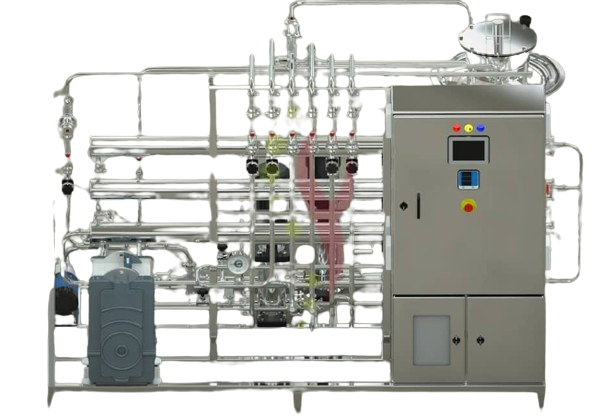The lab uses a distinctive instrument known as an ultrapure water purification system to create spotless water that contains no chemicals or salts together with no bacteria or particles. This type of water proves essential for studies that require any slight impurity to affect test results. The system achieves maximum purity water standards through advanced methods that combine reverse osmosis and UV radiation together with deionization.
The devices operate easily because they are compact and conduct real-time water quality monitoring and analysis. An appropriate mix of distilled water works for biological research along with chemical analysis and sensitivity testing. The use of an ultrapure water system saves time and money and delivers steady quality for precise measurement results without requiring customers to buy bottled water. The instrument is vital for laboratories that prioritize accurate and reliable work procedures.
Laboratories depending on precision and contamination-free water require an ultrapure water purification system as an essential instrument for contemporary usage. The advanced system functions to remove ions alongside organic compounds together with particles and microbes for achieving rigid purity standards. Arts such as molecular biology and chromatography and pharmaceutical research alongside analytical testing heavily depend on this technology.

Important Characteristics of Ultrapure Water Systems
- Several water filters integrate reverse osmosis with deionisation and UV sterilisation to attain outstanding water purity.
- The system contains sensors to track both TOC and resistivity measurements which reflect water quality.
- Small and Easy to Use Design: models that save space and provide user-friendly interfaces for smooth integration into lab operations.
- Systems designed to deliver Type I, Type II, or Type III water in accordance with particular laboratory requirements are known as customisable outputs.
Advantages of Ultrapure Water Systems
- Water quality that is constant guarantees dependability for delicate experiments.
- Decreased Contamination Risk: Gets rid of typical pollutants that can ruin outcomes.
- Economical: long-term savings by reducing dependency on outside sources and bottled water.
Uses of Ultrapure Water Systems
- Life Sciences: Essential for cell culture, DNA sequencing, and PCR.
- Accuracy in spectroscopy and chromatography is supported by chemical analysis.
- Nanotechnology and material testing are made easier by industrial research.
Ultrapure Water Purification System
As the name implies, ultrapure water is water that has been thoroughly cleaned to remove all impurities. This degree of purification is frequently employed in the production of semiconductors and is necessary for sophisticated analytical methods like HPLC. A variety of purification methods must be used in order to eliminate various impurities and create ultrapure water. Examples of these include UV photo-oxidation lamps, synthetic activated carbon, ion-exchange resin, microfiltration membranes, and ultrafiltration membranes. Pure water is used in some systems, while tap water is used directly in others. Ultrapure water purification systems have a resistance of up to 18.2 mOhm-cm because of their high level of purification, which also results in low levels of anionic contamination.
The available feed water, required volumes, and necessary water quality monitoring should all be taken into account when choosing an ultrapure water purification system. The water they produce can be used to make microbe culturing media, thermohygrostats, sterilizers, and the last rinse of experimental materials and equipment. It can also be used as feed water for ultra-pure water production equipment. The 4.3″ wide graphic display makes it possible to identify the level of the storage tank, the filter pack’s utilization status, and the pure water quality.
Laboratory grade distilled water or water of comparable quality that continuously satisfies strict water standards is necessary for clinical, pharmaceutical, and research laboratories. Water that is below the required quality not only alters the chemistry of the test but also harms the instruments, which lowers test reliability and raises reagent costs and calibration times. Our association is one of the leading producers, suppliers, distributors, and dealers of premium filtration products. Reputable and reliable sources in the industry provide the products that are being offered.
